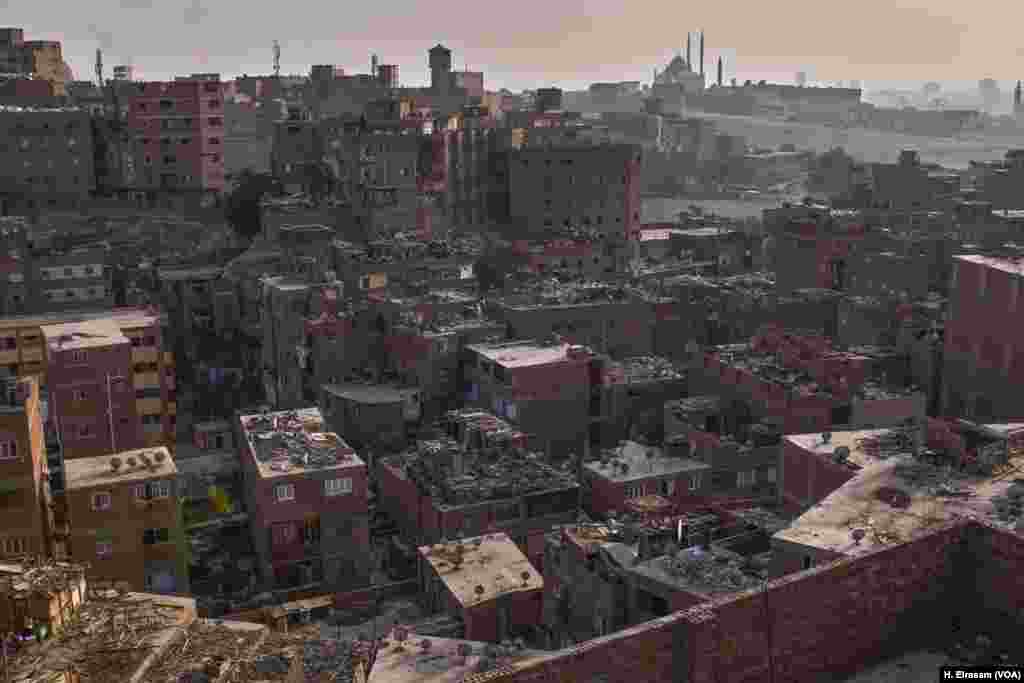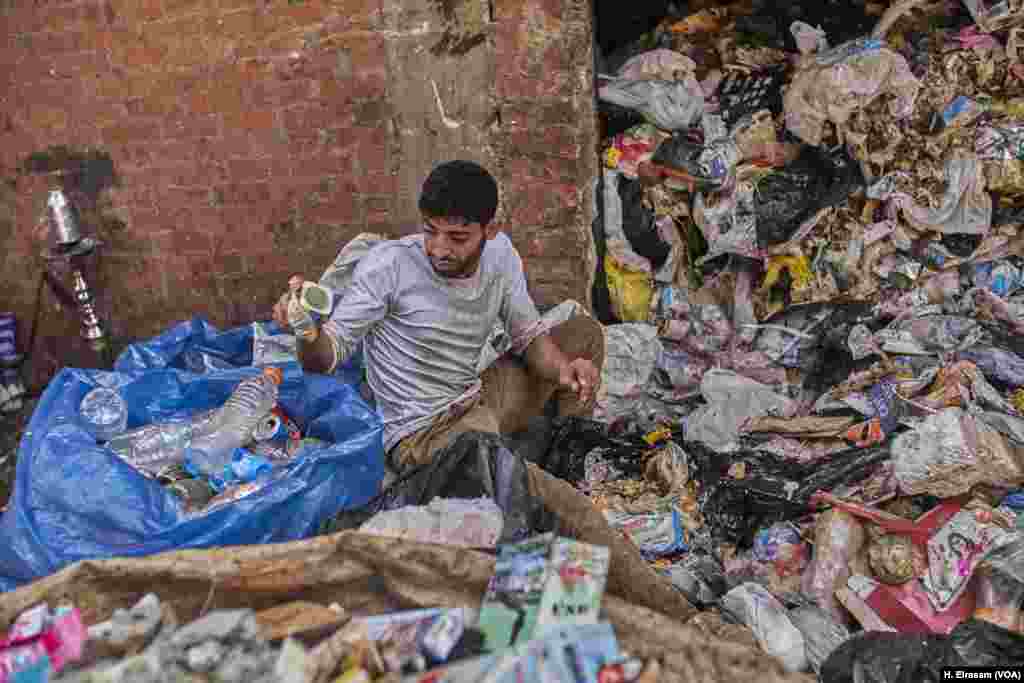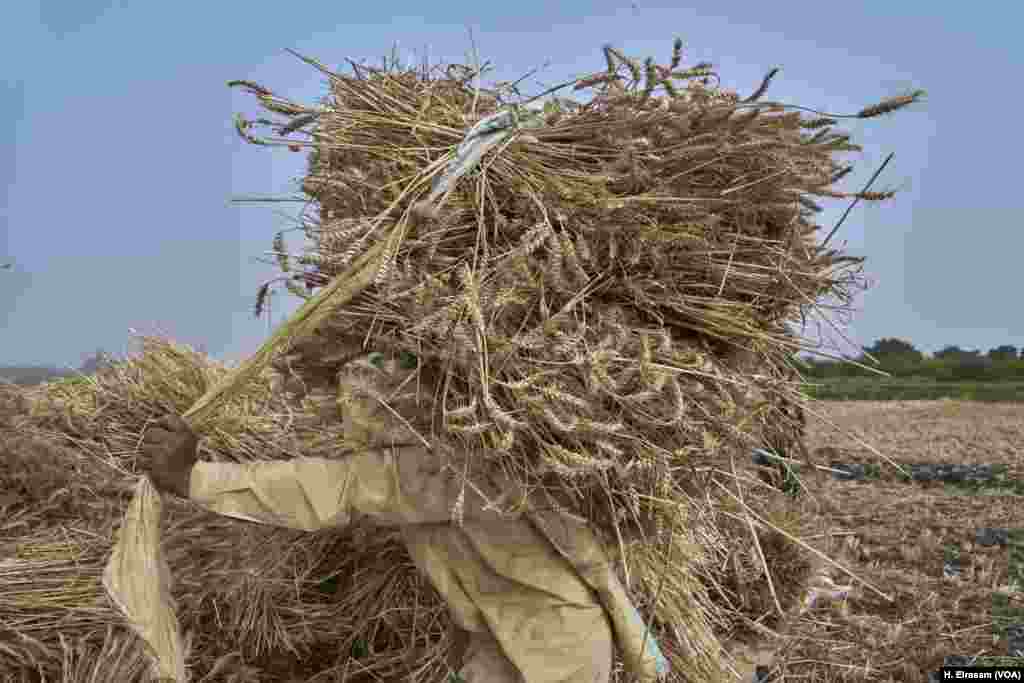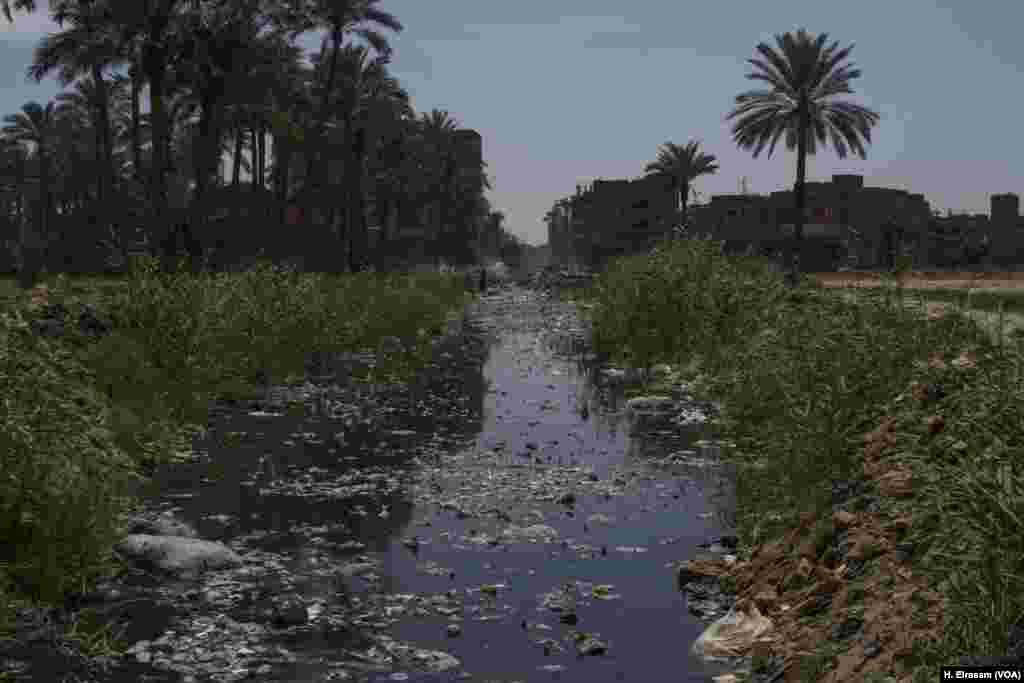Uprkos neuhranjenosti dece, Egipat se nalazi među zemljama koje najviše bacaju hranu - godišnje svakia osoba u proseku baca 73 kilograma zdrave hrane. To se najčešće događa za vreme muslimanskog svetog meseca Ramadana. Dok mnogi u Egiptu nastavljaju sa tom navikom, drugi nastoje da pronađu bolji način da hrana ne završi na otpadu.
Uprkos neuhranjenosti velikog broja dece, Egipćani imaju običaj da bacaju hranu

1
A view of Manshiyat Nasser, an impoverished eastern Cairo district known commonly as “Garbage City,” where the capital’s garbage and food leftovers are dumped and, in some cases, recycled. The Association for the Protection of the Environment, an NGO in Cairo, says almost 40 percent of food in Egypt is wasted.

2
Osama, a worker and resident of Manshiyat Nasser, separates garbage for recycling. Cairo’s Garbage receives 14,000 tons of garbage every day, nearly half of it organic waste, according to the Association to Protect the Environment.

3
An Egyptian farmer in Qalyubia governorate, in the Nile River Delta, carries a load of wheat after harvest. The food waste starts from the production and harvesting stages due to what environmentalists describe as technical, social, economic, and practices.

4
Trash blows into a ditch used for irrigation in Al-Marg, a low-income district north of Cairo. Access to water that is free from garbage and industrial pollution is a challenge for many Egyptian farmers.